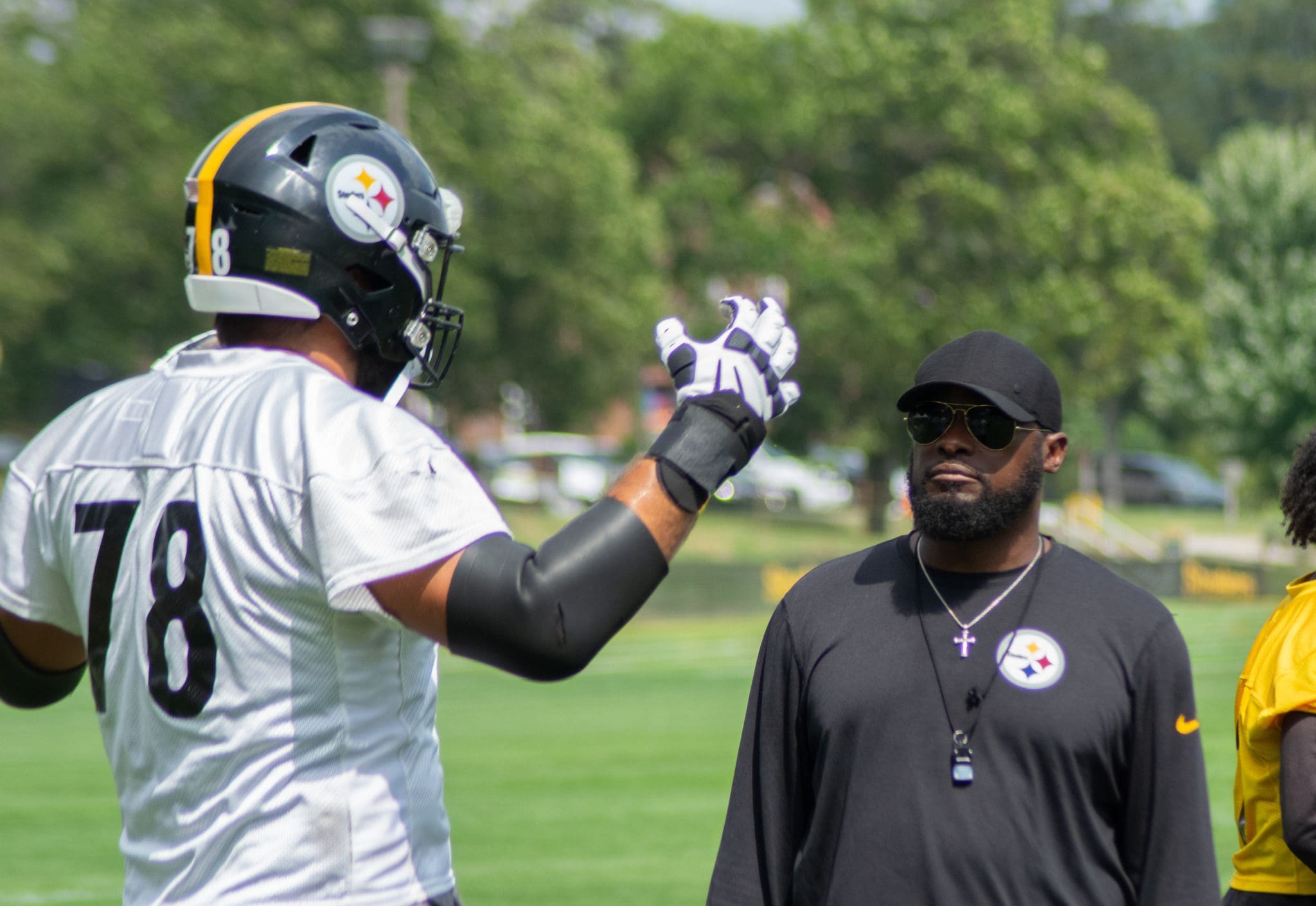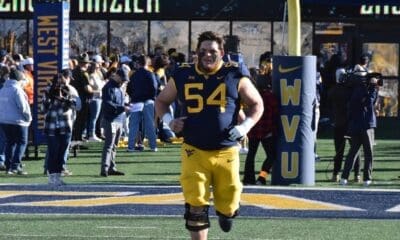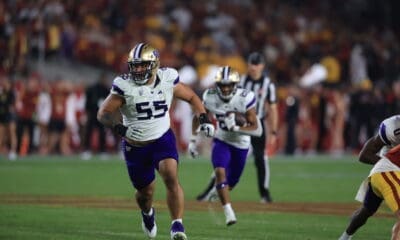Steelers Commentary
Saunders: Steelers Leaders’ Show True Ability in Response to Tragedy

UNITY TWP., Pa. — When a football team goes through any type of struggle, players will naturally look to their leaders for guidance.
That’s particularly the case when the leaders of the team are among the longest-tenured and most-respected around the league at their positions.
But according to the narrative that surrounded the Pittsburgh Steelers over the last nine months, the team’s leaders — most notably quarterback Ben Roethlisberger and head coach Mike Tomlin — were responsible for the drama and dysfunction that surrounded the team. For many, it was an indictment of their abilities as leaders of men.
We now have overwhelming evidence that narrative was shortsighted, if not completely incorrect. First, Antonio Brown has shown completely and without any shadow of a doubt that he was the cause of most, if not all, of the drama that surrounded him with his continued antics, disruption and legal issues while with the Oakland Raiders.
But more importantly, the Steelers’ leaders were faced with a far more difficult challenge during this year’s training camp than dealing with an acting-out wide receiver. The death of coach Darryl Drake on Sunday hit the team hard, particularly those that were closest to him.
That group certainly included Roethlisberger and Tomlin. Tomlin had known Drake for years before they became coworkers and was visibly upset when talking about his former friend this week.
“Professionally, obviously, the loss is significant, but personally, it’s even bigger,” Tomlin said Those of us that knew and had personal relationships with Coach Drake all feel that way.
“In ’97, I was a young wide receiver coach at Arkansas State. He was viewed as one of the top wide receivers coaches in the college game. I was politely aggressive in building a relationship with him. He probably didn’t have a choice, or that’s how he’d described it, in being my friend. I was too persistent.
“He extended courtesies to me like he does to a lot of young guys like myself in the profession and that’s why we talked about him the way we do. He sent me drill tape and things of that nature. We developed a rapport and things went from there.
“Coaching was Coach Drake’s platform for ministry. He wore many hats. Coaching was his vocation, but he was a father, a mentor, a brother, an advisor, like we all are in a lot of ways, to the men that he worked with, not only now, but over the course of his career, which spanned decades.”
Roethlisberger, similarly, spoke of how deeply he was effected by Drake’s influence.
“I only knew him for a year and a half, but in that year and a half, he meant more to me than some people that I’ve know my whole life,” Roethlisberger said Thursday. “I know he was an amazing football coach, but he was an even better man, better husband, better father and better man of God than he was a football coach. So, what he brought to this team and our relationship together, is truly something that could never be replicated and he will be very dearly missed, but we know that he is with us and we know that he’s in a better place.”
But despite their personal relationships with Drake, and the individual pain they have been going through, Roethlisberger and Tomlin have bought into their role as healers and leaders on the squad. Photographer Ed Thompson caught a glimpse of Roethlisberger consoling JuJu Smith-Schuster in the rain during practice on Tuesday.
Rough day at @steelers camp today; the first day back after Coach Drakes sudden death. @TeamJuJu was visibly still shaken and @_BigBen7 tried to ease the pain. @247Sports @AllanBell247 pic.twitter.com/8S4I3Zn1Ni
— Ed Thompson ™️ (@ThompsonFoto12) August 13, 2019
He spoke Thursday about the importance of that job.
“Just try to be there,” he said of his role. “Listen. I think that’s sometimes the best that you can do with grief is just to listen. So many times, we get caught trying to talk and telling people that it’ll be OK. But grief isn’t about being OK. It’s about grieving and talking and communicating, so I’m just trying to be a good communicator and listen.”
Tomlin led the team forward, saying “we intend to march” through the grief and pain to continue to fulfill the team’s professional obligations, while also recognizing that the pain needed real, professional healing. Tomlin brought in grief counselors, saying such methods were “not for the weak, but the wise.”
And so it went up and down the veterans of the Steelers’ locker room, from soft-spoken voices of experience like Alejandro Villanueva to the raw emotion of Ryan Switzer, all following the examples laid before them of acknowledging their grief and the importance of open communication and togetherness in times of trouble.
A star wide receiver that wants the ball more and can’t control his own ego? That’s a first-world problem, and an invented problem at that.
The death of a friend, a co-worker, a mentor and an important member of an organization? That’s as real as it gets.
When the Steelers’ leaders were tested with a real issue, they showed their true ability.














